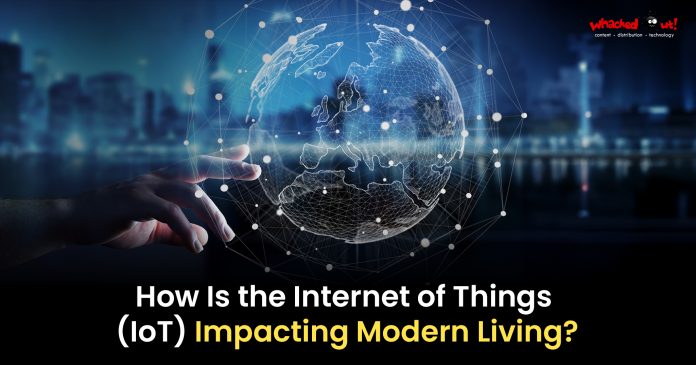The Internet of Things (IoT) is revolutionizing our daily lives by connecting everyday objects to the Internet, enabling them to communicate and share data. This interconnectedness enhances convenience, efficiency, and safety across various domains, from smart homes to healthcare. Here’s a closer look at how IoT is making a significant impact on our lives today.
Enhancing Daily Living with Smart Homes
One of the most visible applications of IoT is in smart home technology. Devices such as smart thermostats, lights, and security systems allow homeowners to control their environments remotely through smartphones or voice commands.
Key Features:
- Smart Lighting: IoT-enabled lighting systems can adjust brightness based on occupancy or time of day, leading to energy savings and improved ambiance.
- Smart Thermostats: These devices learn user preferences and optimize heating and cooling schedules, enhancing comfort while reducing energy consumption.
- Home Security: Smart locks and cameras provide real-time monitoring and alerts, allowing homeowners to manage security from anywhere.
Improving Healthcare Outcomes
IoT is transforming healthcare by enabling remote patient monitoring and enhancing the quality of care. Wearable devices such as fitness trackers and smartwatches collect vital health data, which can be shared with healthcare providers for real-time analysis.
Benefits:
- Remote Monitoring: Patients can be monitored from home, reducing hospital visits and allowing for timely interventions when necessary.
- Elderly Care: IoT devices can detect falls or health emergencies, alerting caregivers immediately and ensuring prompt assistance.
Revolutionizing Transportation
In the transportation sector, IoT applications are enhancing safety and efficiency. Connected vehicles utilize sensors to monitor performance and provide real-time data to drivers.
Applications:
- Fleet Management: Companies like UPS use IoT to track delivery vehicles in real-time, optimizing routes and reducing fuel consumption.
- Smart Traffic Management: Cities employ IoT sensors to monitor traffic patterns, helping to alleviate congestion by providing real-time updates to commuters.
Advancing Agriculture
IoT technology is also making waves in agriculture by promoting precision farming practices. Sensors can monitor soil moisture levels, weather conditions, and crop health, enabling farmers to make informed decisions.
Impact:
- Resource Management: Smart irrigation systems only water crops when necessary, conserving water and improving yield.
- Data Analytics: Farmers can analyze data collected from various sensors to enhance productivity and sustainability.
Creating Smart Cities
As urban areas grow, IoT is playing a crucial role in developing smart cities that enhance the quality of life for residents.
Examples:
- Waste Management: Smart bins equipped with sensors notify waste management services when they need to be emptied, optimizing collection routes.
- Pollution Monitoring: Sensors track air quality in real-time, allowing city officials to implement measures to combat pollution effectively.
Conclusion
The Internet of Things is not just a technological trend; it is fundamentally changing how we live, work, and interact with our environment. By connecting devices and enabling them to communicate seamlessly, IoT enhances convenience, improves efficiency, and fosters innovation across various sectors. As this technology continues to evolve, its potential to enrich our lives will only grow, making it an integral part of our future.



